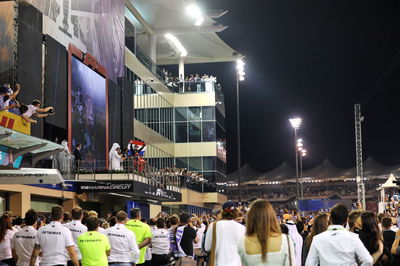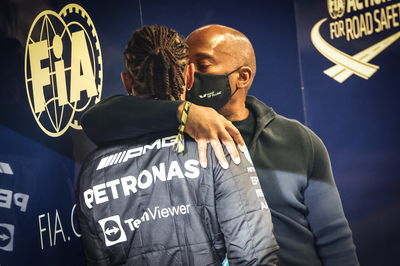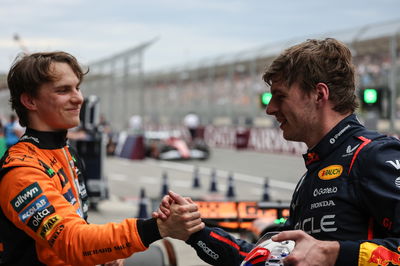What now for F1 and the FIA after sour end to season?
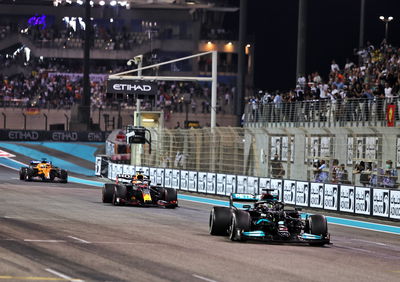
One quick glance over social media will reveal the outrage and confusion many F1 fans are feeling in the wake of one of the most dramatic and contentious world championship finales in history.
While there is no doubting that Max Verstappen is a deserving world champion after producing a phenomenal season in his first proper title battle, the manner in which he sealed his triumph has left a sour taste in the mouth.
Lewis Hamilton appeared on course to win a record-breaking eighth world championship after snatching the lead from his rival at the start and utterly controlling the race.
That was until, the race, the world title, and a moment of sporting history all swung towards Verstappen when Nicholas Latifi crashed his Williams a few laps from home and caused the Safety Car to be deployed.
It was a Safety Car period that ultimately decided the outcome of the drivers’ title and proved to be the source of huge controversy.
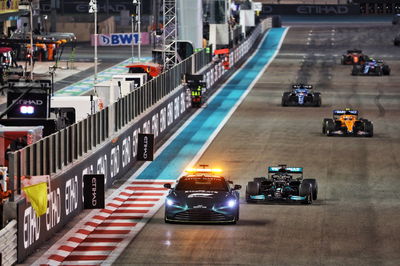
While it may have seemed unfair for Hamilton to see a 12-second advantage he had worked so hard to build up suddenly evaporate, it was a misfortune that is part and parcel of the sport.
But what followed is the subject of such outcry and criticism levelled at the FIA and especially, race director Michael Masi.
The decision to restart the race for a final-lap sprint to the flag to determine the destiny of the world title is what has come under intense scrutiny.
To ensure the race could resume with the laps ticking down, teams were initially told by race control that no cars would be allowed to unlap themselves, before that decision was reversed.
Masi’s unprecedented call to allow only some of the lapped cars to overtake - the five sitting inbetween Hamilton and Verstappen - with the knowledge that Verstappen had a clear advantage with fresher tyres is one of the main points of concern. As is the timing of the end of the Safety Car period.
It was not only the title fight that was impacted. Carlos Sainz was unable to join the Hamilton-Verstappen duel because he had to get past the lapped Daniel Ricciardo and Lance Stroll, all while coming under attack from his rivals behind. The drivers who were allowed to unlap themselves ended up nearly a minute behind the top-six due to the speedy restart.
Several drivers were confused, with McLaren’s Lando Norris left feeling the one-lap shootout was “obviously made to be a fight, it was for the TV”. Meanwhile, soon-to-be Mercedes driver George Russell took to social media to slam the ending as “absolutely unacceptable”.
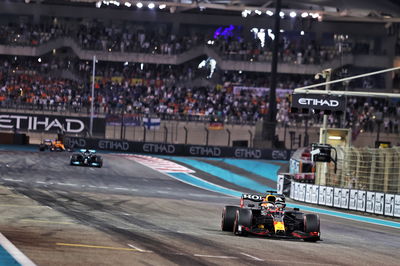
The decision also appears to contradict a similar scenario which unfolded during last year’s Eifel Grand Prix in Germany.
On that occasion, Masi was criticised for keeping the Safety Car out for an unnecessarily long time after Norris’s smoking McLaren stopped on track.
“There’s a requirement in the sporting regulations to wave all the lapped cars past,” he said in response to questions about his decision at the time.
That was not followed in Abu Dhabi. However, F1 has since been leaning more towards a ‘let them race’ principle to try and ensure that grands prix end under green flag conditions, as seen with the late standing restart following a red flag in Baku earlier this year.
There have been suggestions that a similar grid restart in Abu Dhabi would have been a fairer way to neutralise the race, given that there would have been more time to clear Latifi’s car and subsequent debris, as well as allowing the teams and drivers to change tyres and make repairs.
Rather than celebrating a thrilling conclusion to a classic F1 season, the ending has been marred by controversy and lengthy deliberations in the stewards’ room.
F1 may have got its Hollywood-style ending from an entertainment standpoint, but from a sporting perspective, there was a sense of injustice.
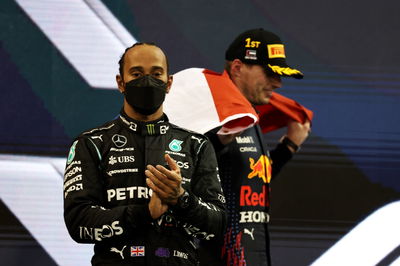
That is the main argument of Mercedes and the trigger of its post-race protests, both of which were ultimately dismissed by the stewards.
Mercedes argued the normal Safety Car protocols were not followed and the reigning world champions were not alone in that viewpoint. The team is currently assessing whether to appeal and, potentially, take the matter to an independent hearing at the Court of Arbitration for Sport.
Mercedes has 96 hours to decide - until 8pm UK time Thursday - whether it will push ahead with its appeal or withdraw. The team brought Paul Harris, who was named legal barrister of the year for 2021, with it to the final race in Abu Dhabi.
Should Mercedes proceed, it will be followed by a case at the FIA International Court of Appeal in the coming weeks.
Regardless of whether Mercedes does lodge an appeal and is successful or not, there will surely be some form of consequences.
Only time will tell what form those will take and whether it will result in clarifications, or a complete rewrite of the rulebook. Either way, the championship result is unlikely to be overturned.
Mercedes is not the only team to feel aggrieved by decisions made by race control and the stewards this year. Indeed, its direct rival Red Bull has also been on the receiving end of questionable calls, as well as gaining from them.
The entire 2021 season has been dogged by puzzling decisions and inconsistencies, leading to discontent and confusion up and down the grid.
Some media reports suggest that several teams and drivers have lost confidence in Masi and that he may even be fighting to keep his job.
However the coming weeks and months unfold, it is set to be a crucial period as the sport seeks to rebuild its reputation and integrity heading into a brand new era.
